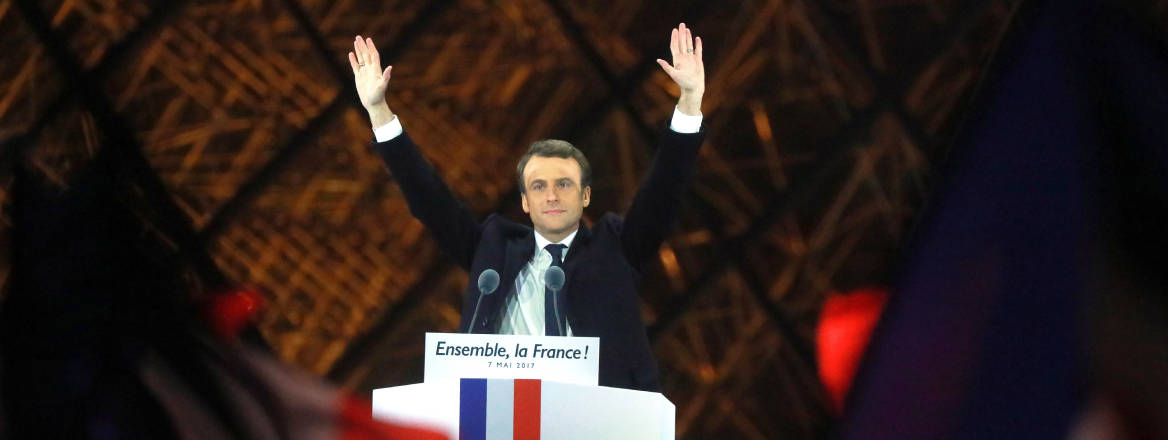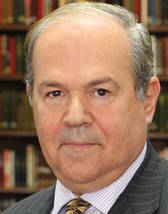Emmanuel Macron’s Electoral Victory: Now the Hard Work Begins
France’s newly elected president is now Europe’s hottest political asset. However, despite Emmanuel Macron’s solid electoral victory on Sunday, he remains vulnerable at home, and has yet to consolidate his power.
By all appearances, Emmanuel Macron's victory is complete: The 39-year-old eighth president of France’s Fifth Republic defeated Marine Le Pen, the leader of the far-right, anti-immigrant National Front, by a whopping 66.1% to 33.9%, a far better score than even his closest supporters had dared to predict.
Macron’s victory pageant was also carefully choreographed to convey this image of a decisive political change, but which is nevertheless a vote for stability.
Soon after the polls closed, the president-elect spoke before tens of thousands of enthusiastic flag-waving supporters in front of the Louvre's Pyramid after walking alone to the stage to the strains of Beethoven’s ‘Ode to Joy’, the EU’s anthem. It was an exact repeat of the 1981 electoral victory celebrations of François Mitterrand, the first Socialist president to rule modern France.
However, the man who now becomes France’s youngest head of state since Napoleon seized power more than two centuries ago cannot be compared with any other Fifth Republic president: he is neither of the traditional left, nor of the traditional right, and he leads no political party.
Nor is his victory as complete as it seems, or his political prospects as rosy as they now may appear.
Undoubtedly, the impact of France’s presidential vote extends far beyond the country’s borders. After the victory of anti-EU campaigners in the Brexit referendum and the election of Donald Trump as US president, the received wisdom was that other European countries would also vote for right-wing populists.
And France looked to be the ripest European country for this, since the NF is a well-established nationalist political movement. The fact that Le Pen has now lost badly – her 33.9% of the vote was worse than the 40% opinion polls initially predicted – means that the French elections have dispelled fears about the supposedly unstoppable march of right-wing populists.
A key European country has now voted for a politician who believes in free trade, open borders and closer European integration. That gives France a huge boost in its international standing, and one Macron is bound to exploit.
Macron’s problem is that the domestic map he inherits is far from being either clear or promising. First, it is worth noting that although Le Pen lost badly, the number of votes she won was still twice that her father and former NF leader Jean-Marie Le Pen received when he contested the presidency in 2002.
So although Le Pen now has to wait until 2022 before she can stand again for the presidency, she can plausibly claim to have made great strides.
Second, one in four of those entitled to vote failed to turn out on Sunday, the highest non-participation rate in a second round of French elections in almost half a century. Yesterday’s vote also recorded the highest number of spoilt ballots ever, yet another pointer that a vote for Macron was less a positive choice about him, and more a vote against Le Pen.
Indeed, exit polls indicated that only 16% of those who voted for Macron did so because they believed in his governance programme.
So, France’s electoral system works as intended, by encouraging people to eliminate the candidate they dislike most. That has its own merits, but should not be confused with the forging of a yet-to-emerge new political consensus.
And then, there are indications that no fewer than 44% of French voters in the 18–24 age bracket opted for Le Pen. President-elect Macron is the choice of older voters, while the NF continues to attract a disproportionate segment of the young, an ominous indicator in itself.
Yet Macron still has a chance to forge his national consensus in June’s parliamentary elections. He says he is ‘utterly confident’ of gaining an overall parliamentary majority after the second round of votes on 18 June. Some opinion polls appear to confirm this, by projecting that his En Marche! movement may get 24% in the first round of the parliamentary elections, on 11 June, enough to knock out many incumbent MPs from established parties.
But it may not be as straightforward as that. Macron’s advisers must now find no fewer than 577 constituency candidates for the Assemblée nationale, hardly an easy task at the best of times. And they will have to provide them with policies for a party that has yet to be born, and all within the next two weeks.
And the same opinion surveys which put Macron’s supporters well ahead of their opponents also contain serious warnings for the incoming president. One poll in Le Figaro, one of the country’s top dailies, suggests a full 69% of the electorate want the parliamentary elections to produce a different result from the presidential ones, and only one-fifth of voters believe that parliament should be of the same political stripe as the president.
Meanwhile, his political opponents have every incentive to regroup fast. The mainstream centre-right Republicans and centre-left Socialists, both of which did badly in the presidential elections, will throw everything into the vote, for they know that if they do not do well in June, they risk disappearing altogether. And the defeated NF still enjoys its rock-solid 20% electoral support.
The odds are, therefore, that although Macron’s party may do well in the parliamentary elections, the new president will not end up with the legislature he wants or the majority he needs to implement his political and economic reforms.
Still, Macron’s story is that of a triumph of the improbable against impossible odds. And at least for some time to come, he will be the face of visibly rejuvenated France.
WRITTEN BY
Jonathan Eyal
Associate Director, Strategic Research Partnerships
RUSI International


